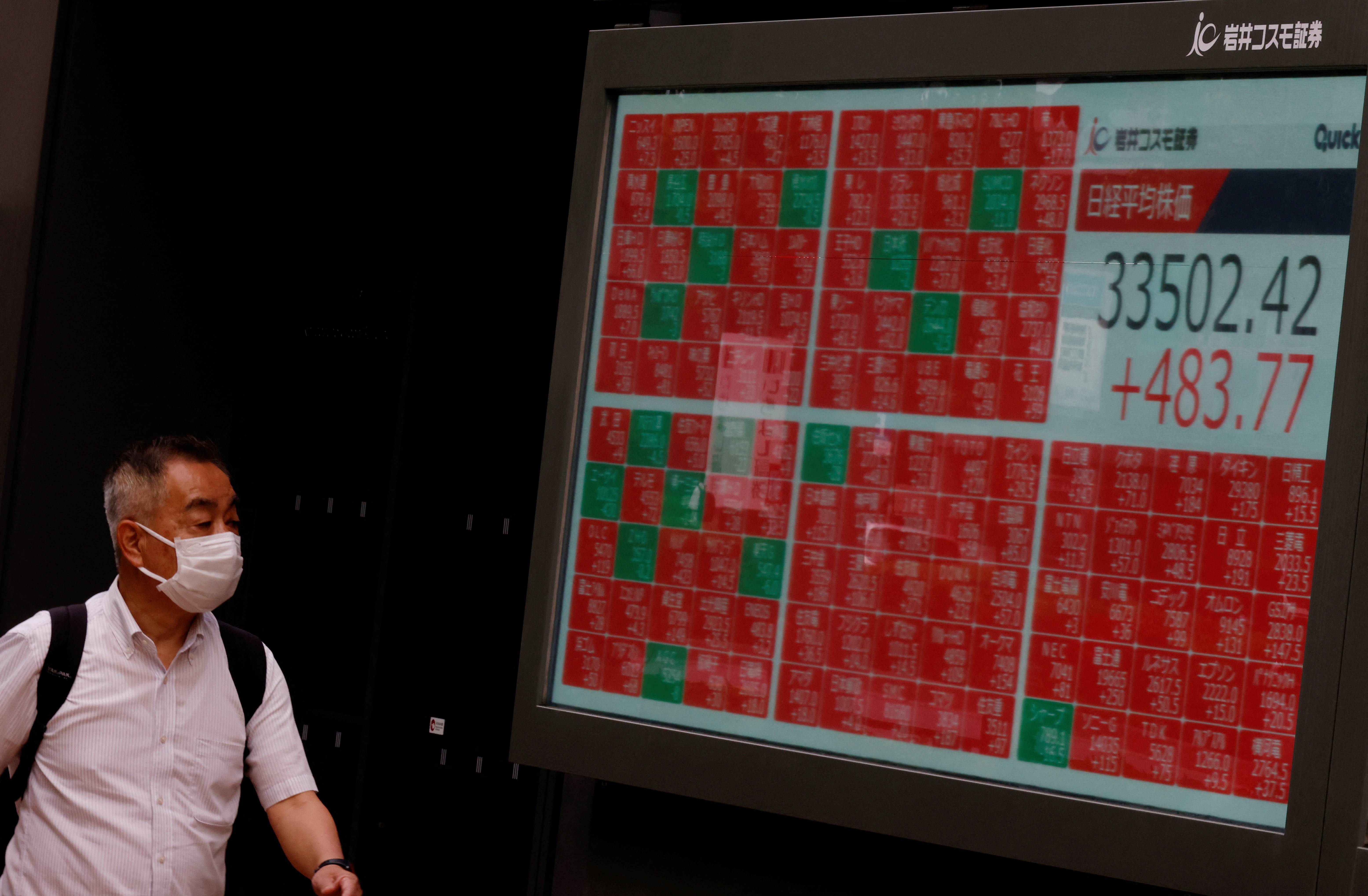
Asian stocks rose in cautious trade on Tuesday, with investors choosing to focus on corporate earnings prospects and the resilience of the U.S. economy ahead of tensions in the Middle East.
MSCI’s broadest index of Asia-Pacific shares outside Japan (.MIAPJ0000PUS) advanced 0.4%. Tokyo’s Nikkei (.N225) rose 1%.
Overnight the S&P 500 (.SPX) had climbed 1%, while oil prices and the U.S. dollar had fallen.
A host of “favorable” signs from the strength of the U.S. consumer, economic growth, and interest rates supporting bank profits, gave reasons for hope, said Kerry Craig, a global market strategist at J.P. Morgan Asset Management.
Quarterly results from Goldman Sachs (GS.N) and Bank of America (BAC.N) are due on Tuesday, with Morgan Stanley (MS.N), pharmaceutical giant Johnson & Johnson (JNJ.N), Tesla (TSLA.O) and Netflix (NFLX.O) due later in the week.
A recent shift in tone from Federal Reserve officials – hinting that interest rate hikes might be over – has also cheered investors and bond markets lately.
Benchmark 10-year Treasury yields are about 15 basis points off 16-year highs, though they crept higher in Asia trade Tuesday to 4.7331%.
Investors are also trying to assess risks that a wider conflict breaks out in the Middle East which remains a “very fluid situation”, Craig said.
U.S. President Joe Biden will visit Israel on Wednesday as the country prepares to escalate an offensive against Hamas militants that has set off a humanitarian crisis in Gaza and raised fears of a broader conflict with Iran.
Iran’s Foreign Minister said Israel would not be allowed to act in Gaza without consequences, warning of “preemptive action” by the “resistance front” in the coming hours.
Israel’s shekel weakened beyond 4-to-the-dollar for the first time since 2015 on Monday, as it bears some of the brunt of worry and uncertainty about the Gaza situation.
In currency markets the Australian dollar ticked up a little to $0.6354 as minutes from the most recent central bank meeting struck a surprisingly hawkish tone, while the U.S. dollar steadied elsewhere.
A slowdown in New Zealand inflation to a two-year low dented bets on any further interest rate hikes and the kiwi , which slipped 0.4% to $0.5906.
The euro traded at $1.0549 and the yen hovered just short of the 150-per-dollar mark at 149.53.
China’s property sector, meanwhile, edged toward deeper trouble with Tuesday marking the end of a 30-day grace period on a late payment from developer Country Garden (2007.HK). If investors don’t receive the coupon payment, all of Country Garden’s offshore debts will be deemed in default.
The property sector (.HSMPI) was flat while the Hang Seng (.HSI) rose 0.8% on Tuesday. A mainland real estate index (.CSI931775) fell 0.6%.
Gold edged away from Friday’s three-week high and was last at $1,915 an ounce. Brent crude futures had dropped more than $1 a barrel on Monday on hopes for an agreement that the U.S. will ease sanctions on Venezuelan oil.
Brent futures were last down 23 cents or 0.25% to $89.43 a barrel. Bitcoin had leapt on Monday before giving up gains after BlackRock denied a report that it had won approval for a bitcoin exchange traded fund.
It was last at $28,353 after trading as high as $29.900 on Monday.
The post Asia stocks rise on earnings hopes; keep wary eye on Mideast tensions first appeared on The News And Times – thenewsandtimes.com.
